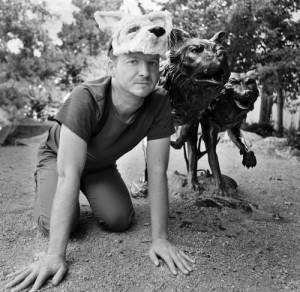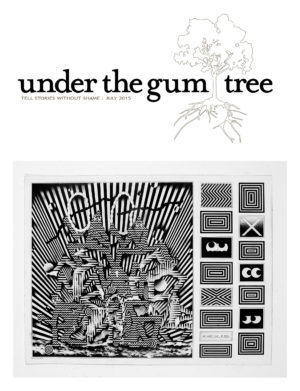Nick Jaina

Nick Jaina was born in Sacramento. He released his first book, Get It While You Can, a work of non-fiction, through Perfect Day Publishing in January 2015. The book doesn’t tell about all the great things that he has done; it shows vulnerability and struggle and how he got through that. “Because,” he says, “those are the things that have helped me the most.” He has released a handful of albums and written the music for several ballets, contemporary dance pieces, feature films, and plays. His writing has been featured in Atlantic Monthly and McSweeney’s Quarterly. You can find out more about Nick here.
“I’d feel embarrassed describing Nick Jaina as a genius outright, and I’m sure he’d hate that, too, but it’s so tempting—because he is so clearly the real deal.”
You mention that you looked up to Cobain because he was someone who knew what it meant to be sad. But, in retrospect you say: “Now I just think of him as someone who couldn’t stop falling down and hurting himself.” Why did your view of him change so dramatically? As a teenager, why did you think it was almost noble to know what sadness truly meant? Do you still believe that it’s noble?
My view of Kurt Cobain changed when I got older and realized that he left behind a wife and a baby daughter. I stopped seeing his behavior as noble and started seeing it as selfish. He had been dwelling on sadness for years, even talking about suicide before he had a kid. To have a child and then exit their life in that way is just very selfish behavior, and it’s disappointing that people just lionize him instead of thinking of the consequences of that behavior. I have dealt with depression and I know that it is real and heavy and no joking matter, and I have many times considered suicide, but that doesn’t excuse you from the commitments you make as a husband and a father.
Besides Nirvana and, more specifically, Kurt Cobain, who were your greatest musical influences?
Later in the book I talk about some of my influences, such as Paul Simon and Tom Waits. I’ve always been drawn to song craftsmen who were focused on the heart, about conveying emotion rather than cleverness.
When you first learned guitar, what drew you specifically to the Nirvana song “Smells Like Teen Spirit”?
I was drawn to the song “Smells Like Teen Spirit” because it was just so ass-kicking. I was not into hip music before, and would listen to cassette tapes of Elton John and Billy Joel. That song just kicked in the door and hit you in the face. The power of it is diminished by all the imitations that came after it, so it’s hard to experience what it felt like in the early nineties, when music had been either soft rock or stupid hair metal. But it was a life-saving song for people who wanted to feel.
You mention feeling anxious every time you’re waiting for your guitar at baggage claim, then relieved when you see it intact, “like a little Calvin when he takes Hobbes out of the dryer.” How does your relationship to your guitar effect your music? Do you think it’s important to care for the instruments you play, to treat them more like people instead of things?
I think a guitar has a soul to it, and the shape and style of it leads your fingers to certain places and to write certain songs. It’s the same as the way you hang out with a friend and you think of ideas that neither of you would have come up with on your own. I’ve never been the type of composer that can just write music on a page. I need an instrument to guide me to the soul of a song.
When you stain your guitar purple, you say, “everyone thought that this discoloration came from sweat or blood and that was fine too.” Why did this rough version of love for your guitar mean so much to you? Do you think it made your relationship more meaningful, like you’d shared some sort of common experience?
People are so afraid to personalize their world sometimes, and I just decided early on that I don’t want to live my life for the re-sale. That is to say, what’s the point of having something if you don’t use it all up? I’m not going to just keep the action figures in the original packaging because they’ll be worth more. These things were made to be used, they are crying out for the love of a rough life.
What do you mean when you feel “chained” to the older music, the music you say you can’t let go of?
Songwriters have the strange burden of having to live with their old material all the time. Audiences understandably want to hear their favorite songs, not just the new stuff that the musician is excited about. This can be difficult sometimes for the songwriter who has moved on emotionally from a particular person or a time in their life, but that time is documented by a song that people love. You want to honor people’s connection to the song by playing it, but it can toss you back in past emotions that you had long since wanted to move on from.

